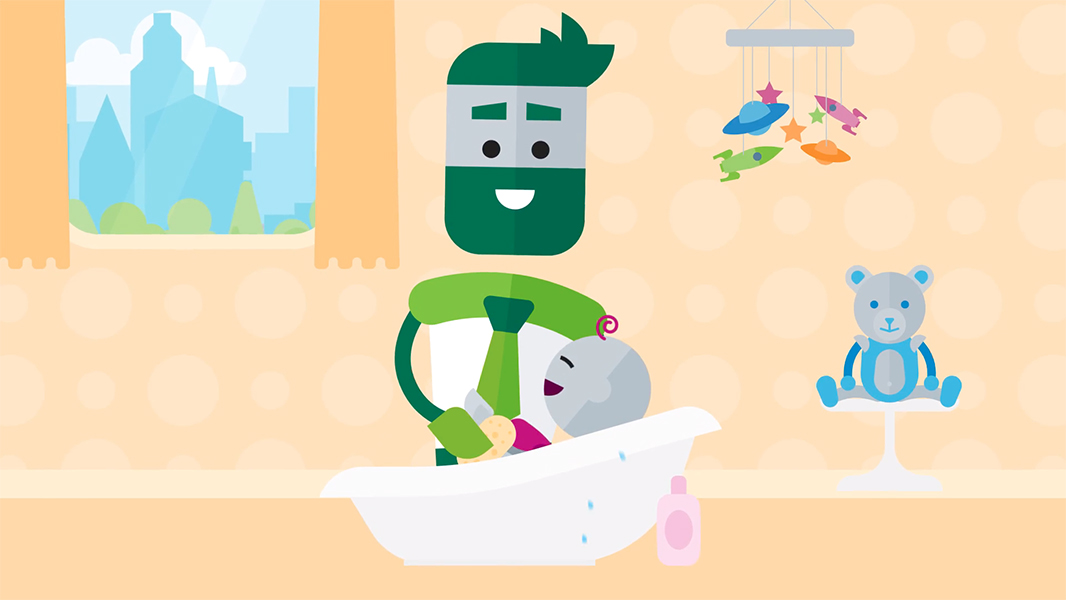
A baby can hear from about 24 weeks of pregnancy, they can recognise familiar voices when they’re born and prefer faces to shapes.
How you react with your new baby makes a big difference to their later development. There’s lots of information about interacting with your baby on the links below.
Babies and children need to be given the chance to learn and develop and these pages give ideas and suggestions to help you give your baby the best start.
Part of your child’s health review will be to see how they are developing, whether you have any concerns and getting ready for the next stage as they grow up.
All children develop differently but where this isn’t as we’d expect we’ll discuss a plan of care with you. This might mean a follow up check or a referral to a doctor or specialist for more advice.
For your child’s two-year review (usually completed between the ages of 2 and 2½), your health visiting team will send you two questionnaires, known as the Ages and Stages Questionnaires (ASQ-3 and ASQ SE).






